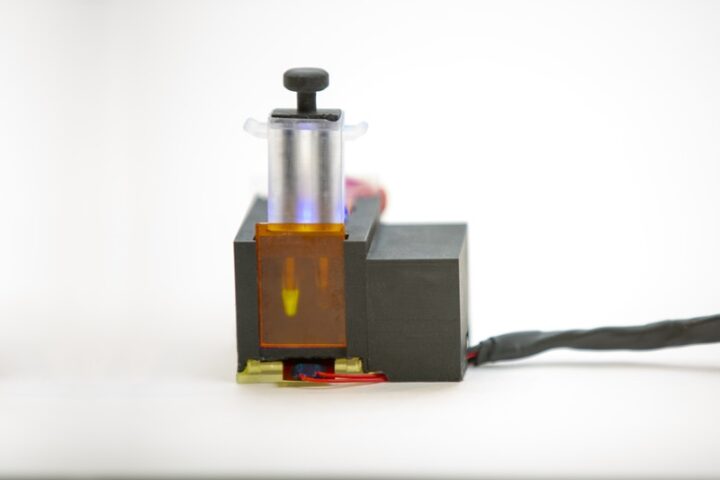Scientists have developed a device that allows users to test themselves for COVID-19 and multiple variants of the virus using a sample of their saliva.
The device was created by researchers at the Wyss Institute for Biologically Inspired Engineering at Harvard University, the Massachusetts Institute of Technology (MIT), and several Boston-area hospitals.
The researchers tested saliva samples from 27 people with COVID-19 and 21 people without the virus and the test identified the virus about 96% of the time, which is similar to the PCR tests.
The test was said to have detected three different variants of COVID-19: the United Kingdom, South African, and Brazilian variants.
Advertisement
Although the study was conducted before the Delta variant began circulating, the researchers say it can be quickly reconfigured to detect additional variants.
According to the institute, the device, called minimally instrumented SHERLOCK (miSHERLOCK), can be assembled using a 3D printer and commonly available components, and that it can be used at home with no extra instrumentation needed.
All that is needed is for the user to spit into the sample preparation chamber, transfer the collection disc to the reaction chamber and press a plunger, which then activates the reaction.
Advertisement
The test results can be read using an accompanying smartphone app that analyses the fluorescent generated by the test, giving users a clear “positive” or “negative” result within one hour.
The team said it chose to use saliva rather than nasopharyngeal swab samples as the collection method because it’s easier for users to collect saliva.
Helena de Puig, a co-first author of the study and postdoctoral fellow at the institute, said the test simplifies the sample preparation process.
“miSHERLOCK eliminates the need to transport patient samples to a centralized testing location and greatly simplifies the sample preparation steps, giving patients and doctors a faster, more accurate picture of individual and community health, which is critical during an evolving pandemic,” she said.
Advertisement
Add a comment






